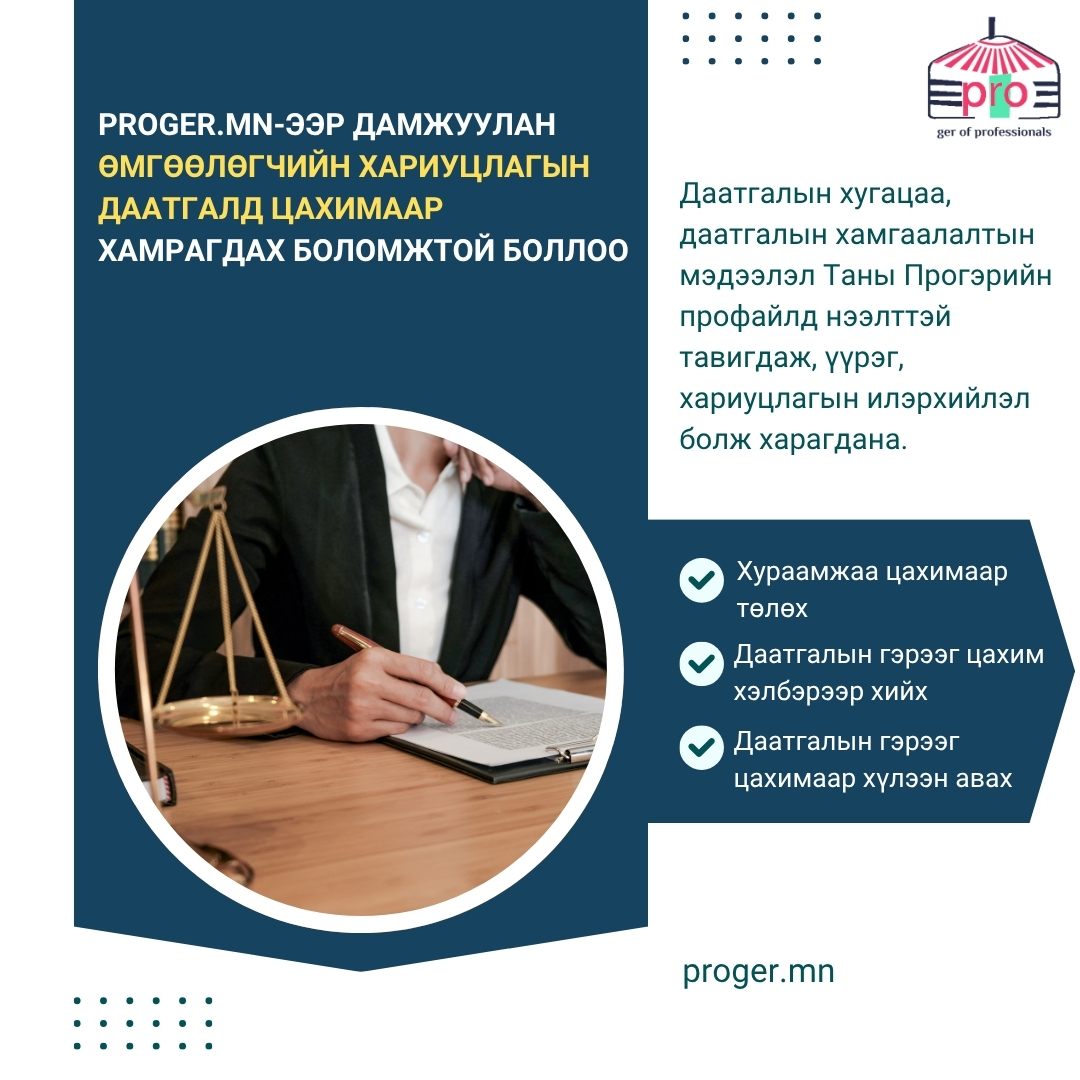Бүтээлийн нэр
Захиргааны процессын эрх зүйн шинэчлэл: Захиргааны хэрэг хянан шийдвэрлэх ажиллагааны зорилго ба Хэрэг хянан шийдвэрлэх ажиллагааны төрөл
Зохиогч
Хэлбэр
Эрдэм шинжилгээний өгүүлэл
Салбар
Захиргааны процессын эрх зүй
Бүтээлийн товч
Монгол Улсад захиргааны процессын эрх зүйн хөгжилд 2002 оны Захиргааны хэргийн шүүх байгуулах тухай, Захиргааны хэрэг хянан шийдвэрлэх тухай хууль батлагдан 2004 оноос хэрэгжиж эхэлсэнээс хойш эрс өөрчлөлт хийгдэж, захирганы хэрэг хянан шийдвэрлэх ажиллагааны зорилго нь хууль эрх зүйн хувьд цоо шинэ гэж хэлж болохуйц үзэл баримтлал буюу захиргааны үйл ажиллагаанаас зөрчигдсөн эрхийг сэргээн, тогтоох зорилготой болсон билээ. Гэвч энэхүү үзэл баримтлал нь шүүхийн практикт буюу хуулийн бодит хэрэгжилтэнд бүрэн төгс ойлгогдож, хэрэглэгдэж чадахгүй байсаар 10 гаруй жил өнгөрсөн байна. Захиргааны эрх зүйн онолын хувьд 1992 оны Үндсэн хуулийн төрөөс хүний эрх, эрх чөлөөг хангахуйц хууль зүйн баталгааг бүрдүүлэх, хөндөгдсөн эрхийг сэргээн эдлүүлэх үүргийг иргэнийхээ өмнө хариуцах зохицуулалт болон 2002 оны процессын хуульд тусгаж өгсөн захиргааны хэрэг хянан шийдвэрлэх ажиллагааны зорилго нь иргэн, хуулийн этгээдээс эрхээ хамгаалуулах баталгаа байх зарчмыг боловсронгуй болгож, хөгжүүлэх, нарийвчлан тодорхойлох шаардлага гарч байна. Захиргааны ерөнхий хууль анх удаа батлагдан гарч мөрдөгдөх гэж буйтай холбогдуулан захиргааны хэрэг шүүхэд хянан шийдвэрлэх ажиллагааны зохицуулалтыг шинэчлэн найруулах шаардлага гарч буй энэ үед Монгол улсын захиргааны эрх зүйн эх сурвалж болсон эх газрын эрх зүйн тогтолцооны түүхэн сурвалж, оно баримтлал, орчин цагын захиргааны эрх зүйн хөгжлийн хандлага, онолын үндэслэл болон өнгөрсөн цөөхөн жилийн туршлагад тулгуурлан хэрэг хянан шийдвэрлэх ажиллагааны зорилго болон төрлийг хуулийн шинэчилсэн найруулгад боловсруулан тусгах асуудлыг энд хөндсөн болно.
Summary in English: The Mongolian Parliament enacted the General Administrative Law on June 19, 2015. This law will take effect on July 1 of this year (2016). Many in the legal community in Mongolia believe that the absence of a standardized general administrative law has contributed to the lack of substantial development of Mongolian administrative law. It is true that in the area of administrative law, legal practice is in need of general principles and standard procedures in order to make administrative law litigation more consistent, predictable, and ultimately more just. In fact, it became more evident since the creation of administrative courts in 2004 that Mongolian administrative law requires clear statutory development. The Law on Procedure for Administrative Cases, which was enacted in 2002, adequately defines only a few provisions such as “administrative act” and “administrative agency.” The Law on Procedure for Administrative Cases had included a listing of particular administrative agencies whose activities were subject to judicial review, it was a practice for last ten years, now such specification is rejected. The list-based (enumeration clause) approach enables some agencies to avoid judicial review just because they were not included in the list. A definition-based (sort of general clause) approach, which enables the court to determine on a case by case basis whether or not that an entity qualifies as an “administrative agency” is introduced by the enactment of the General Administrative Law. Therefore, the newly drafted Administrative Court Procedure Law must reflect this changes and it also need to redefine the objectives of administrative court procedure. Though it is previously declared in the Law on Procedure for Administrative Cases that purpose of the administrative litigation is to provide a remedy against undue obligations or breach of right and legal interest by illegal administrative activity, practice exposed difficulties caused by path dependence and theoretical ambiguities among scholars and practitioners. Therefore, this article will urge to clearly define the main objective of administrative litigation as to protect and restore a subjective right and a legal interest, moreover it discusses on defining types of litigation, importance of differentiating the objective and subjective litigation.
Summary in English: The Mongolian Parliament enacted the General Administrative Law on June 19, 2015. This law will take effect on July 1 of this year (2016). Many in the legal community in Mongolia believe that the absence of a standardized general administrative law has contributed to the lack of substantial development of Mongolian administrative law. It is true that in the area of administrative law, legal practice is in need of general principles and standard procedures in order to make administrative law litigation more consistent, predictable, and ultimately more just. In fact, it became more evident since the creation of administrative courts in 2004 that Mongolian administrative law requires clear statutory development. The Law on Procedure for Administrative Cases, which was enacted in 2002, adequately defines only a few provisions such as “administrative act” and “administrative agency.” The Law on Procedure for Administrative Cases had included a listing of particular administrative agencies whose activities were subject to judicial review, it was a practice for last ten years, now such specification is rejected. The list-based (enumeration clause) approach enables some agencies to avoid judicial review just because they were not included in the list. A definition-based (sort of general clause) approach, which enables the court to determine on a case by case basis whether or not that an entity qualifies as an “administrative agency” is introduced by the enactment of the General Administrative Law. Therefore, the newly drafted Administrative Court Procedure Law must reflect this changes and it also need to redefine the objectives of administrative court procedure. Though it is previously declared in the Law on Procedure for Administrative Cases that purpose of the administrative litigation is to provide a remedy against undue obligations or breach of right and legal interest by illegal administrative activity, practice exposed difficulties caused by path dependence and theoretical ambiguities among scholars and practitioners. Therefore, this article will urge to clearly define the main objective of administrative litigation as to protect and restore a subjective right and a legal interest, moreover it discusses on defining types of litigation, importance of differentiating the objective and subjective litigation.
Түлхүүр үг
субъектив эрхийн зөрчлийн маргаан, обьектив эрх зүйн маргаан, нийтийн эрх ашгийг төлөөлөн нэхэмжлэх, захиргааны шүүхийн зорилго, шүүхэд хянагдах захиргааны үйл ажиллагааны төрөл, цар хүрээ, Захиргааны ерөнхий хууль, Захиргааны хэрэг шүүхэд хянан шийдвэрлэх тухай хууль.
subjective litigation, subjective right, objective litigation, types of
administrative litigation, open standing, objective of administrative litigation, General
Administrative Law, Administrative Court Procedure Law
subjective litigation, subjective right, objective litigation, types of
administrative litigation, open standing, objective of administrative litigation, General
Administrative Law, Administrative Court Procedure Law
Бичигдсэн огноо
2015-10-16
Хуудсын тоо
7
Хэл
Монгол
Бүтээл
Байршуулсан огноо
2016-11-07
Товч мэдээлэл үзсэн
12395
Бүрэн эхээр нь үзсэн
1024
Эшлэлийн тоо
15
Санал болгож буй эшлэлийн загвар
Ц.Цогт
“Захиргааны процессын эрх зүйн шинэчлэл: Захиргааны хэрэг хянан шийдвэрлэх ажиллагааны зорилго ба Хэрэг хянан шийдвэрлэх ажиллагааны төрөл” (2015), ... дахь/дэх тал.
Legaldata-аас унших боломжтой: https://legaldata.mn/b/119
Цуглуулганд нэмэх
Бүтээлийг цуглуулгандaa нэмэхийн тулд нэвтэрсэн байх шаардлагатай.
Бүртгэлтэй бол нэвтрэх | Бүртгэлгүй бол бүртгүүлэх
Бүртгэлтэй бол нэвтрэх | Бүртгэлгүй бол бүртгүүлэх
МЭДЭЭ, МЭДЭЭЛЭЛ

“Дагнасан шүүхийн тогтолцоо: Хүүхдийн эрх ашиг ба гэр бүл” олон улсын эрдэм шинжилгээний хурал (II хэсэг)
3 hours from now

S2EP22. А.Түвшинтөгс: Бэлэглэлийн гэрээг хүчингүй болгох болон хүчин төгөлдөр бус тооцсон талаар маргаан шийдвэрлэсэн шүүхийн шийдвэрт хийсэн дүн шинжилгээ
1 day ago

“Дагнасан шүүхийн тогтолцоо: Хүүхдийн эрх ашиг ба гэр бүл” олон улсын эрдэм шинжилгээний хурал (I хэсэг)
1 day ago

Өмгөөлөгч мэргэжлийн хариуцлагын даатгалдаа цахимаар хамрагдах боломжтой боллоо
1 week ago
-
Ганбат Мөнхтулга
2025-06-26 Эрдэм шинжилгээний өгүүлэлдуудаж байна ! -
Батсайханы Мөнхзул
2025-06-26 Эрдэм шинжилгээний өгүүлэлдуудаж байна ! -
Ганбат Мөнхтулга
2025-06-25 Эрдэм шинжилгээний өгүүлэлдуудаж байна ! -
Баатарын Сарантуяа
2025-06-24 Эрдэм шинжилгээний өгүүлэлдуудаж байна ! -
Ганбат Мөнхтулга
2025-06-24 Эрдэм шинжилгээний өгүүлэлдуудаж байна ! -
Judilogy
2025-06-23 Мэдээллийн хуудасдуудаж байна ! -
Ганбат Мөнхтулга Нэрэндашийн Дуламсүрэн
2025-06-23 Эрдэм шинжилгээний өгүүлэлдуудаж байна ! -
Чинбатын Болормаа
2025-06-23 Эрдэм шинжилгээний өгүүлэлдуудаж байна ! -
Ганбат Мөнхтулга
2025-06-23 Эрдэм шинжилгээний өгүүлэлдуудаж байна ! -
Ганбат Мөнхтулга Мөнхгэрэлийн Дэлгэрмаа
2025-06-22 Эрдэм шинжилгээний өгүүлэлдуудаж байна !